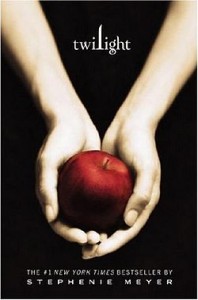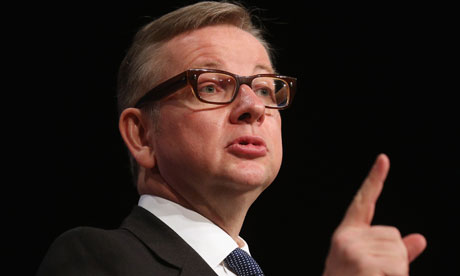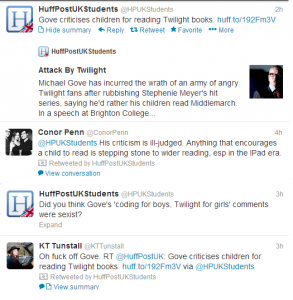Backlash as Michael Gove gives speech slating Twilight.
Today, in characteristic bluster, Michael Gove criticised the standard of literacy in schools in a speech  to an audience of teachers at Brighton College.
to an audience of teachers at Brighton College.
A worthy cause, except the main thing that caught the public imagination was that he launched the talk by criticising the Twilight books, remarking that girls were far better off reading Middlemarch. The subsequent Twitter storm and flurry of retaliatory blog posts vacillated between agreement,
‘Good on him, the Twilight books are shit’
and dispute,
‘At least they’re reading. Do you know hard it is to get kids to read in the iPad age?’
While he went on to criticise the literacy rates in schools, it was this aspect that inspired me to contribute to the debate and to vouch for the need to improve standards in reading and writing.
In sixth form, I helped run a lunchtime History club for pupils from years 6 to 9. When I asked a shy twelve-year-old why he was moving so slowly through his poster project, he muttered, “I can’t read, miss’, and resumed scrawling idly across his sheet of paper. The boy sat next to him couldn’t hold a pen properly. I’d hoped they had come to the club because they were interested in History and wanted to explore it outside their lessons – it was soon clear that they just wanted somewhere to be at lunch away from the canteen. It struck me then that the ability to read is a crucial part in building a child’s confidence as they grow up and negotiate the world around them, not to mention providing a place to escape to when real life becomes overbearing.
More than that, a confident reader is often inspired to create and express themselves: it’s not just about hitting targets, as Gove’s pontificating repeatedly emphasises. The boys in the school History club probably hadn’t been told they were capable of reading and writing well, or motivated to read books they were interested in.
So it doesn’t matter what a child is reading, so long as they’re doing it. The stuffy, backward view is that if children aren’t reading classics, their brains will rot is rubbish. I remember, at the age of about thirteen, being presented by a well-meaning English teacher with a copy of Dickens’ intimidating Our Mutual Friend. I did persevere with it for a while but eventually pushed it aside with frustration at the archaic phrasing and glacial pace. Similarly with Jane Austen and the Brontë sisters, so often recommended to teenage girls. I just couldn’t get into it. Yet at the same time I was devouring the entire back catalogues of Eoin Colfer, Anthony Horowitz, Diana Wynne Jones, Michael Morpurgo and even attempts at J.R.R. Tolkien, among countless others. Before that, it had been anything by Jacqueline Wilson and, of course, the Harry Potter books.
Don’t castigate Twilight: I’ll admit I read and loved them in my teens, and then read them again a couple of years later and realised how terribly written they were. I can’t glance at them now without raging at the Mormonist propaganda and the fact that the central relationship in he books is downright abusive. I found that out by myself though, not because someone whipped the book out of my hands and replaced it with War and Peace.
It’s all part of growing up. I was encouraged by my parents from a very young age to read and it’s this the government should be encouraging, instead of promoting hideous stereotypes, laying the entire blame for poor literacy on schools and, most harmfully, criticising their reading choices once they’ve actually picked up a book and suggesting it reflects on their ability.
What are your opinions on the debate? Should we censor the books students read and only encourage the canon? Tweet us @BoarBooks or comment below…


Comments (1)
I completely agree with this – Gove’s policies around English education are obsessed with re-enforcing the canon rather than on the process of thinking critically about texts and their meaning, which is the real value of the subject. You can do that to George Eliot, you can do that with Twilight: trying to find books which engage all students, especially those who don’t spend time with books in their spare time, is critical to making sure everyone has those skills when they leave school.